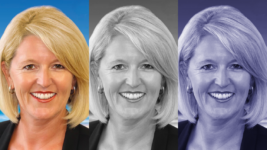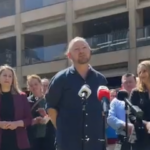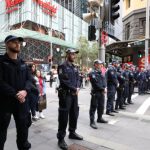Police Minister Is a Key Reason for NSW Government’s Failure to Protect Civil Liberties

The Minns government has been decidedly disappointing when it come to a number of policy areas, especially around civil liberties, drug law reform and indeed, policing reform. But while critics have been pointing the finger at the NSW premier Chris Minns, a recent interview suggests that they ought to have been paying more attention to NSW police minister Yasmin Catley.
An interview with the police minister conducted by journalist Peter FitzSimons appeared in the Herald on 1 June 2025, and on being questioned regarding issues much of the constituency had expected to see progressed by Labor after a decade of Coalition rule, Catley shows herself to be quite the Liberal dressed in Labor clothing, despite having cut her teeth amongst the “hard left of NSW Labor”.
Fitzy quizzes Yasmin about the age of criminal responsibility, strip searches and drug law reform, and the minister fires back the sort of ultraconservative answers that, by the end of the interview, shine a light on the fact that it’s not just Minns who’s been pushing back against the sort of changes that NSW Labor had promised before it took office, because Catley is about as reactionary as they get.
Catley’s time as minister has been marked by multiple police killings of civilians having mental health crises and calls for alternate responders, as well as a monthslong staged antisemitic crimewave that has led to questions about what she and Minns knew about its fabricated nature before progressing hate crimes laws and a pushback against an election promise to enact drug reforms.
In reading Catley’s last weekend responses to a number of issues, one is reminded of the ghosts of NSW police ministers past, like Troy Grant and David Elliott, and even FitzSimons hints that some of her answers around strip searching teens and the violent policing of illicit drugs are outdated conservatives ideas that no longer cut it with much of the NSW constiuency.
Developing the confidence to lock up kids
Catley explains to FitzSimons that she did have some trepidation around becoming police minister because those in the position often develop an “enhanced reputation”, however she came to understand the position differently after she spoke to NSW police commissioner Karen Webb and realised that she’d be “standing up for working people” or more specifically NSW police officers.
So, what became Catley’s “north star” in holding the ministerial position is ensuring that police officers don’t get a “raw deal”, so they’re “not being downtrodden by overzealous managers”, and this might be the reason why every time NSW Greens MLC Sue Higginson has called for an inquiry into police powers and excessive use of force it’s been knocked back by Minns.
The interviewer then suggested that if she’s too fixated on police welfare, she might lose focus on dealing with the policing of the people. But Catley didn’t agree, because “when the police are happy and satisfied in their workplace, we get more out of them”, although more doesn’t necessarily ensure just outcomes as the since revoked search and move-on order quota system had revealed.
The highly controversial NSW law that permits the charging and imprisonment of kids as young as 10 years old was then raised by the journalist, with Catley stressing that she’s pragmatically in favour of it, given her having “walked into a storm of really violent youth crime” when taking office.
The NSW police minister then confided in FitzSimons that it was meeting with the victims of youth crime in Moree that gave her the confidence to advance new policing policies.
As Minns announced these policies Catley is referring to, he preceded it with an assurance that his government would not be raising the age, and he then revealed a new law targeting 14- to 17-year-olds who reoffend whilst on bail in respect of certain crimes then being denied bail, along with an offence ensuring a potential extra two years in gaol if you “post and boast” about a crime online.
The new laws prompted by victims whom Catley liaised with have resulted in an 80 percent increase in youths being held on remand, which means being imprisoned without yet being convicted of a crime, with 88 percent of those captured by the new laws being First Nations children and 90 percent of those imprisoned being Aboriginal kids.
Getting teens to strip off
Having emerged as part of “the hard left of NSW Labor politics” does not necessarily leave a politician with an aversion to the strip searching of teenagers, FitzSimons found out, as when he queried Catley on whether she thought police getting teens to remove their clothes was reasonable, she replied that she considers it a mechanism the police use to “save lives, at the end of the day”.
This declaration reveals a few things about the current police minister. The first being that she is completely out of touch with the realities around how police have been strip searching teenagers on the beat, especially in terms of it saving lives, and secondly, whilst she hasn’t made quite as disturbing comments of one of her predecessors, Catley certainly does have the Liberal attitude.
The strip search debate, not only in respect of children, has been an issue for at least a decade, which was when they started becoming routine.
Indeed, when police minister David Elliott was knocking back criticisms of strip search use on teens in 2019, he said that he had “young children” and if he “thought the police felt they were at risk of doing something wrong”, well, he’d “want them strip searched”.
And so out of control were NSW police getting with strip searches, which were often being conducted unlawfully, the Law Enforcement Conduct Commission launched an inquiry into their use in 2018, while a class action covering the time period into their use at music festivals on teenagers and adults that covered the period 2016 through to 2022 took place last month.
But most disturbing is Catley’s assertion that strip searches “save lives”, as the NSW Coroner has found that the lines of police accompanied by drug dogs at festivals, which these days, carries with it the additional threat of a strip search following a dog indication, are known to result in panic overdosing, when people take all their drugs at once to avoid detection, so they assist in ending lives.
Hard right politicking
FitzSimons then brought up the nine gangland killings that have occurred since December, and Catley responds that the NSW Police Force has formed Task Force Falcon, which combines 13 strike forces and includes 150 police officers and 100 detectives, to counter the violence.
But the journalist goes on to cite the opinion of former NSW Director of Public Prosecutions Nicholas Cowdery, who’s been an avid drug law reformist since 1968.
The journalist further notes Cowdery’s claim that drug laws don’t work, as they can’t stop the flow of illicit substances, and he hints at a system whereby drugs are not in the hands of organised criminals willing to commit violence around distribution, but still be available to those people who are buying them now, and without naming it, FitzSimons is suggesting a lawful and regulated drug market.
“We’re never going to get on top of it while people keep taking these drugs,” responded Catley, relying on the redundant suggestion that people “just say no” to drugs. “And what really sickens me is that people go out and take drugs socially and think that that’s acceptable, when what they are doing, in actual fact, is supporting these gangland wars that are going on.”
So, in blaming the drug taker for the organised criminal network of drug distribution existing and further, in condemning people who use drugs for the violence that organised criminals are meting out against one another, she is returning to the thinking that the war on drugs was established upon, whilst the entire NSW alcohol and other drug (AOD) sector is calling for the decriminalisation of use.
Fitzy then put it the police minister “respectfully” that the drug laws and the policing of them cannot stop the availability of illegal drugs, and therefore, the NSW drug law regime is actually “sustaining these violent gangs”.
“I hate drugs,” the NSW police minister responded, in a manner that does not befit a person holding a ministerial office representing the people. “I am not a drug user and have never been a drug user. It’s something that I, in fact, differ from my colleagues on the left, in that I have no tolerance for drugs.”
So, the minister has not only exposed herself as likely being a driving force behind the NSW premier’s decision to attempt to avoid his election promise of holding a NSW Drug Summit that would, obviously, result in reforms, but she’s also revealed that she’s likely a key reason that when the summit did take place decriminalisation of personal possession and use of drugs was off the agenda.
The journalist then gives it one more shot. He suggests to the minister that wouldn’t it be better to tell people that it would be preferred if they don’t take drugs, but if they do and a problem arises it should treated as a health problem and not a crime, and further, if these ideas were progressed and a legal system was established that would end the gangland wars.
“No. Drugs are illegal in this state, and I support that,” the authoritarian police minister, who appears to consider being voted into office means personal taste is key to lawmaking. “It’s one area that I’ve always had a very strong opinion on, and I’m happy to share my opinion in whatever forum I’m in.”
So, over the period, beginning in August 2023, when Minns first ruled out decriminalisation and delayed the drug summit indefinitely, throughout the following year of the AOD sector campaigning for the summit to be held, and the holding of what appeared to be a disorganised forum designed to fail, the premier has had Catley by his side pushing against any likelihood of reform.
And all those constituents eagerly awaiting the government response to the April released 2024 NSW Drug Summit report, which provided 56 recommendations on how to improve the issue of drugs in NSW, the self-indulgent police minister’s admissions last weekend are likely a pretty good indicator of just how progressive we might expect NSW Labor to get in implementing drug law reforms.







